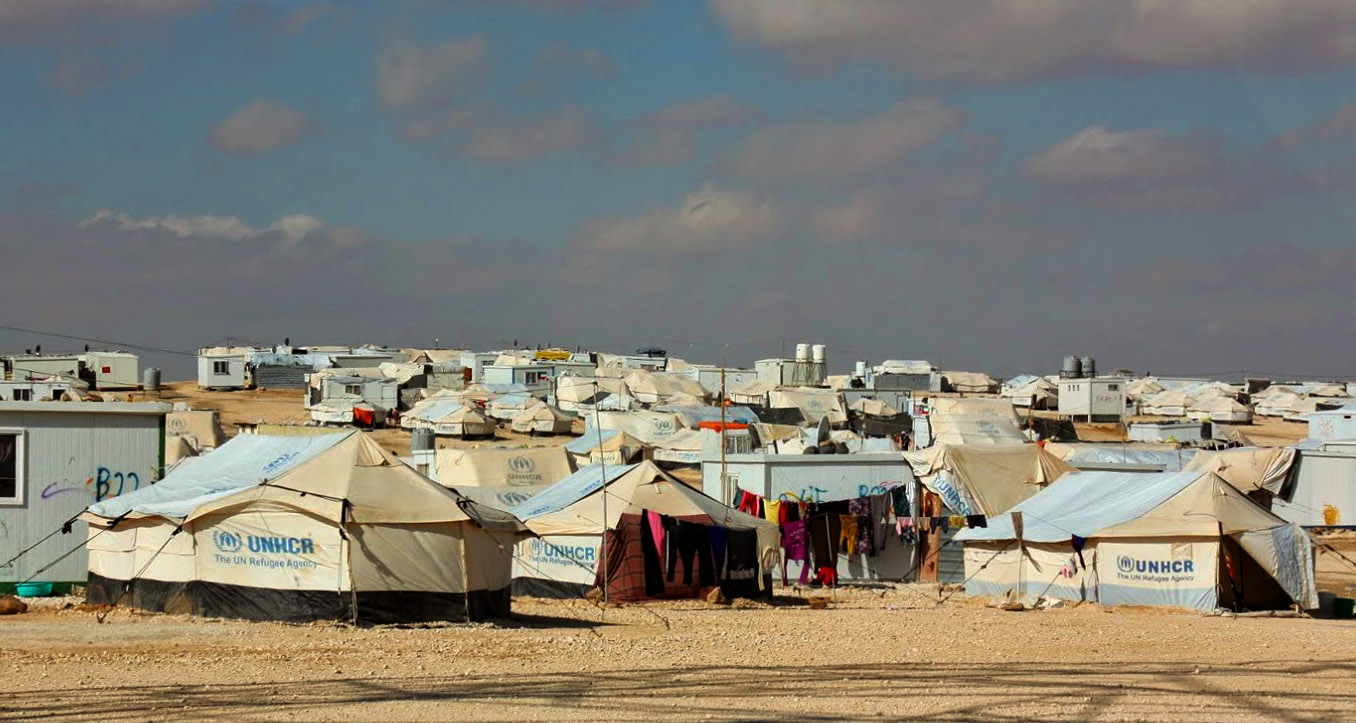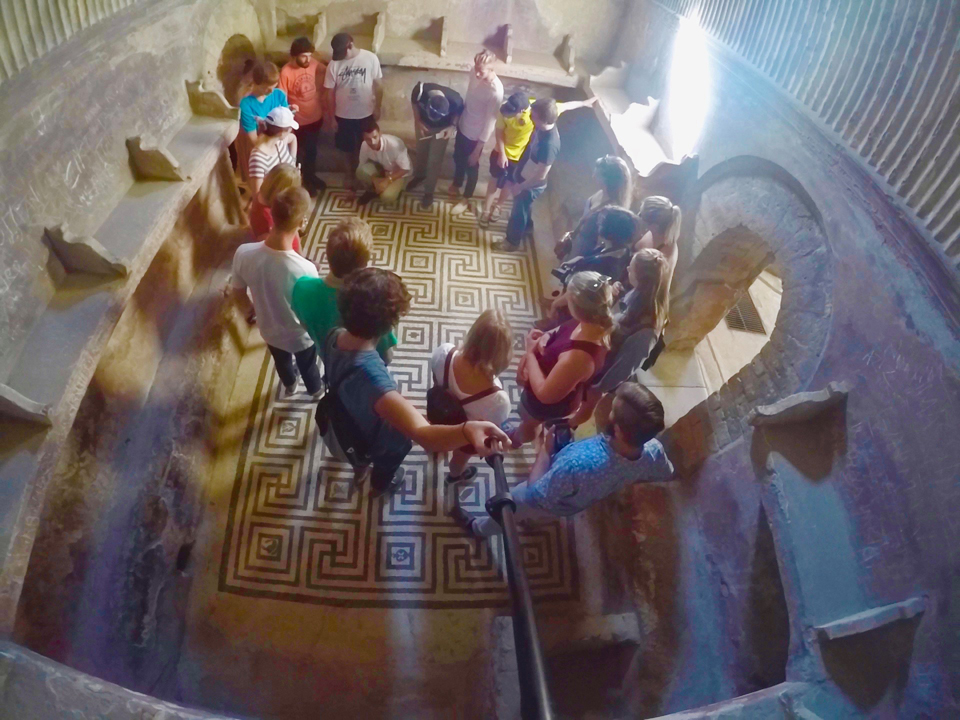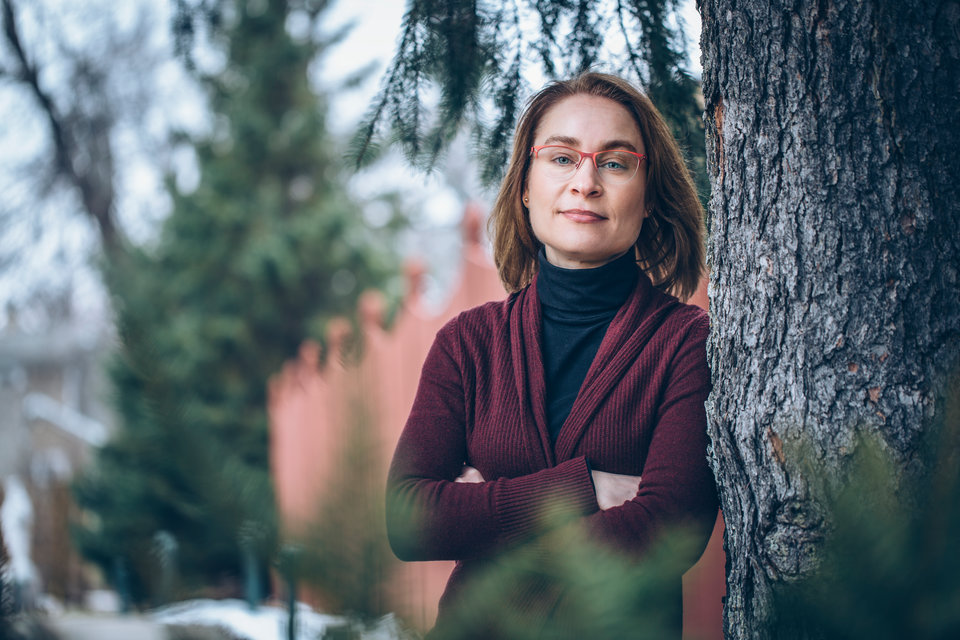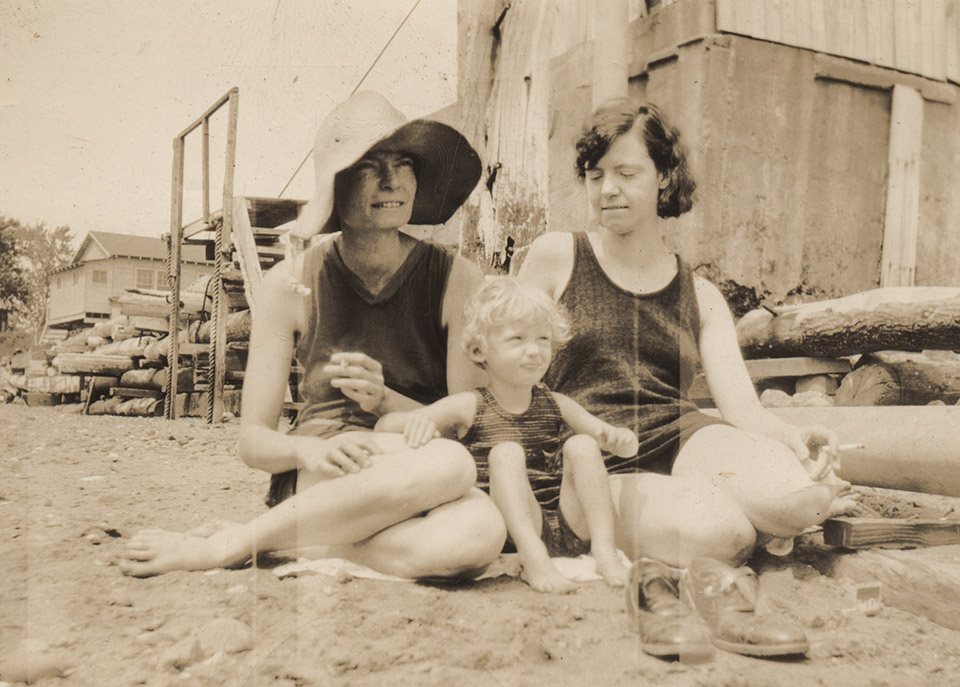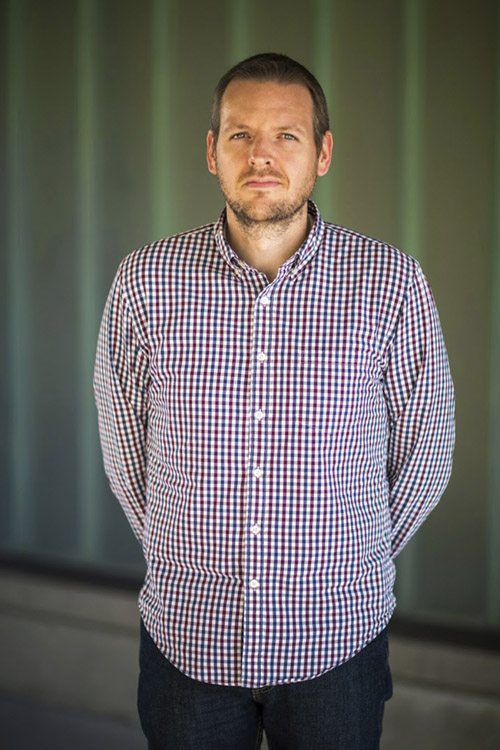
Paul Schmitt
You recently returned from a trip to the Zaatari refugee camp in Jordan. Tell us about what you were working on there.
My research is focused on low-cost wireless communications in under-resourced environments, so I went to Zaatari to find out how the Syrian refugees living there connect to the Internet and cellular networks, as well as to identify gaps in coverage and poor network performance. Refugee camps are typically located outside the margins of existing communications infrastructure and it is a really difficult challenge to provide decent connectivity for 85,000 people that suddenly live in what was previously empty desert.
One of my projects involves affordable (less than $10,000) cellular towers that can cover medium-sized areas. In the case of Zaatari, the tower could be used by residents of the camp to call and text each other for free and give aid workers the ability to communicate with refugees without driving around the camp with bullhorns. We are also working on using the local cell technology to help refugees more easily reconnect with family members and friends they lost touch with when they were forced to flee their homes.
You’ve also worked on improving Internet connectivity in rural Zambia, where the average estimated income is $1 a day. How can better access to the Internet improve the lives of the people there?
Internet access is a huge enabler for people living in developing regions. Probably the biggest benefits we have seen in our deployments come from educational content. An example is a local maize farmer in Zambia who used the Internet to learn how to grow sunflowers since he had been barely scraping by growing maize. He used the Internet to study planting and fertilization techniques and to check on appropriate prices to charge for his crop. After the first year he was making more money growing sunflowers than his best years with maize.
From a different perspective, if we want to learn from the experiences of people in remote, developing regions, they need to have access to the Internet to share their stories and history. Without full participation on the Internet, cultures unique to rural developing regions are at risk of being forgotten.
Your research has brought you to places such as Zambia, Jordan and Guatemala. From all of your travels, what have you learned?
The desire to be connected to cellular networks and the Internet is universal. We’ve gone to places where there was no cellular coverage within 50 miles but the majority of people still own phones; they will walk for half a day or to the tops of hills so that they could get connected to make a call. People really have to go out of their way to use technologies that we take for granted in more developed places. It’s unfortunate that service providers and cellular companies don’t want to build infrastructure in rural areas since the populations are too sparse to make it economical. Everywhere I have been, people have been excited about connecting to cellular networks or obtaining Internet access, which makes my work that much more fun.
There are so many great opportunities right now for computer scientists. Why did you decide to pursue a Ph.D. in computer science and research wireless network connectivity in under-resourced, rural areas?
Well, first, I’ve always enjoyed diving very deeply into the details of anything I was working on. I want to fully understand even the smallest details of a given system. I also like working on and solving complex problems that don’t have obvious answers. So my personality lends itself nicely to doctoral research. I was also given the opportunity to teach some undergraduate computer science courses at St. Thomas after I finished my master’s and found that I love working with students. Given those factors, a Ph.D. made the most sense, as my goal is to become a university professor.
The reason I chose working in under-resourced areas is because I want to work on new, challenging problems that make real-world impact. I can’t think of anything more difficult than working to connect the four billion people that don’t currently have access to the Internet. It is easy to go to work every day when I know that what I’m working on could have a dramatic impact on someone’s life.
You majored in computer science at St. Thomas. How has studying a STEM field at a liberal arts university affected you and your work?
To me, my liberal arts education meant that I was taught to see the bigger picture. It’s easy, I think particularly for people in STEM fields, to be singularly focused on what you are working on and to ignore other points of view or other fields of study altogether. Some of my most memorable courses were outside of computer science and were not something I would have been exposed to if I had gone to a different school.
As far as my work goes, I think my liberal arts background gives me an advantage because I learned how to think independently and come up with creative solutions to problems. These are fundamental skills for academic research but they are hard to obtain, particularly if that part of your brain hasn’t been exercised before attending graduate school.
Scott Yilek works in the Computer and Information Sciences Department
Read more from CAS Spotlight.
